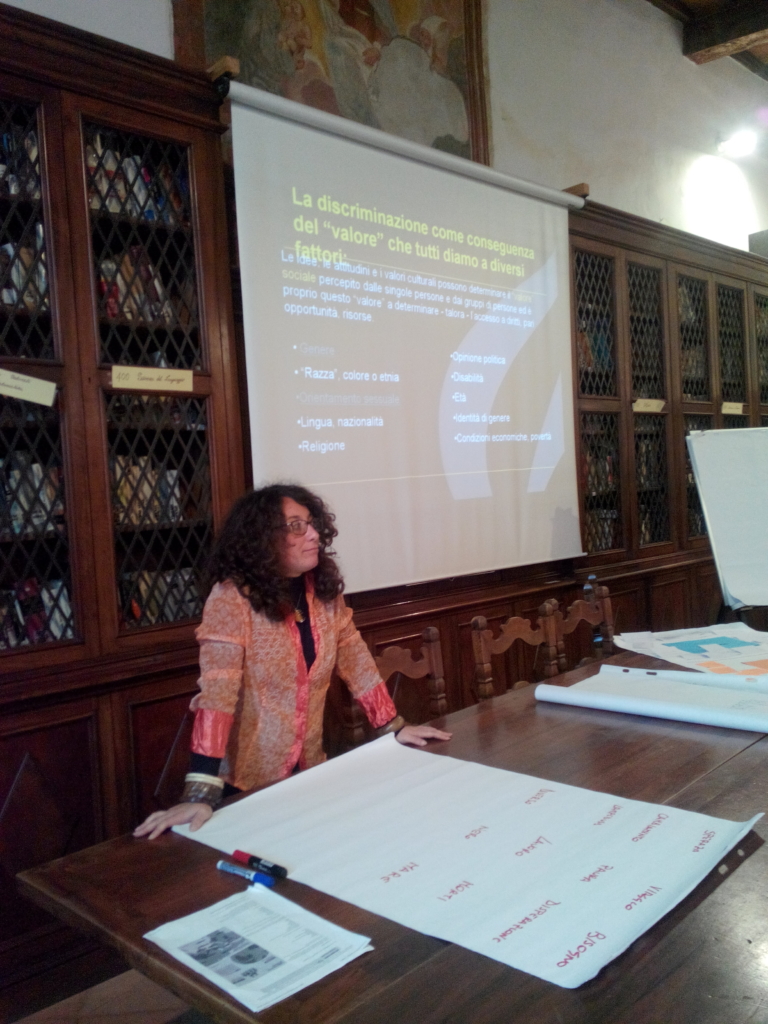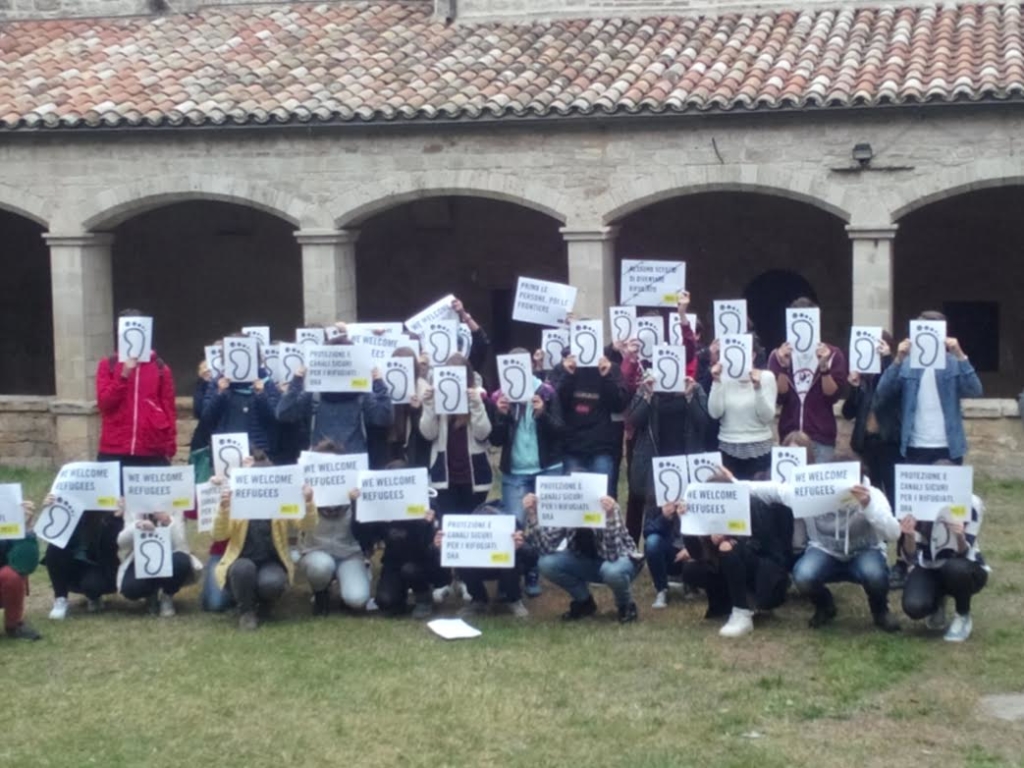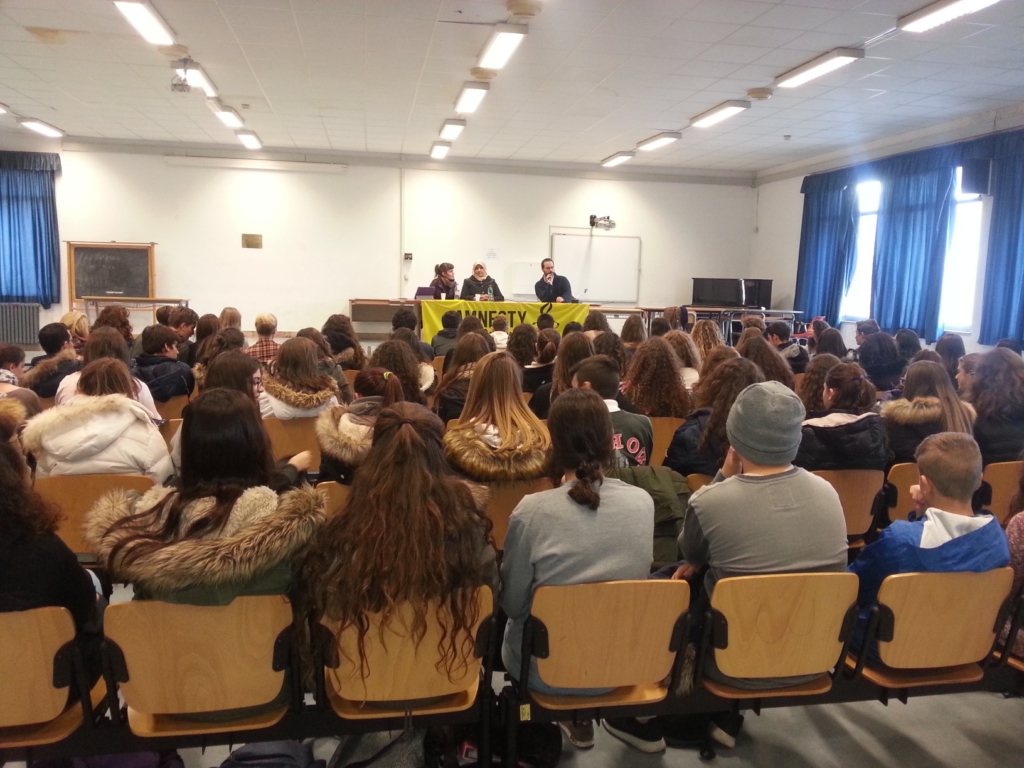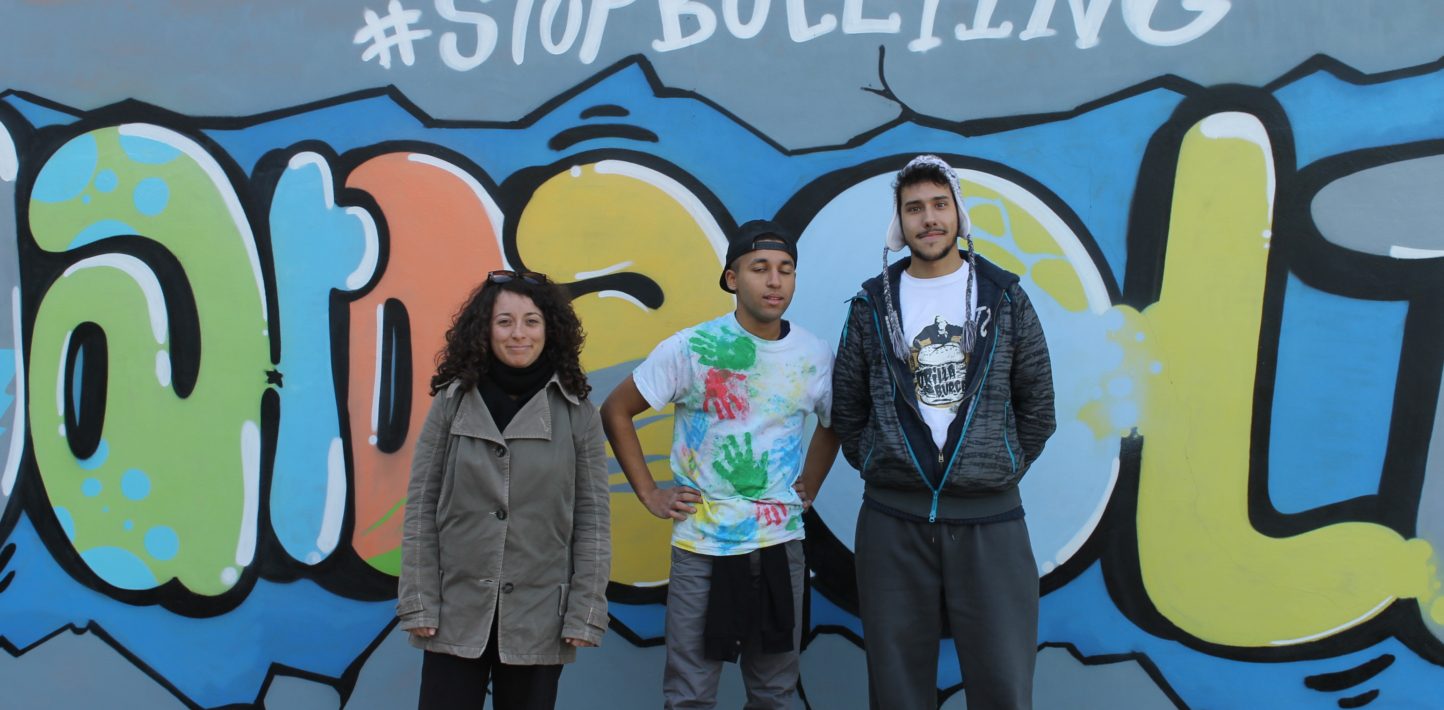If choosing her destiny and being in control of her own story was possible for Laura Maria, 30, human rights educator in training, she says this was never an option for many women in her family. Using her personal experience as an illustration of how education plays a decisive part in people’s lives, here she shares with us why it’s important to work with young people on human rights.
“Human rights education can empower the citizens of the future, the school can be the best place and a book can be an important tool to facilitate this process. As Malala Yousafzai said: ‘One child, one teacher, one book and one pen can change the world’.
This is a powerful message, but to those who have the right to education, it might seem difficult to understand. Education is a right, but it’s also a need and a necessity – it gives the skills to be aware of injustice, to protect oneself, and provides more opportunities.
My personal story is an ordinary storia contadina (farmer story) of the South of Italy. My maternal grandmother was illiterate and her sisters too. They were orphaned during the Second World War and started working in the fields when they were children. Going to school was just a dream.
My mother had a similar destiny; she would have become a teacher but my grandfather forced her to drop out of school at 16, and she had to work in a factory as a seamstress. She is a woman, that was why.
My sister and I had a different story. We choose our destiny, we are free and this is possible today.
This is revenge.”
My sister and I had a different story. We choose our destiny, we are free and this is possible today. This is revenge.
Laura Maria De Marco, human rights educator trainee

Contrasting words, different visions
As an educator trainee, Laura worked with students and teachers on activities such as introducing talks on refugees’ rights in classes or involving schools in human rights campaigns. Amnesty Kids is one of the education projectsshe helped with, which aims to make human rights accessible to primary and secondary schools across Italy:
“With Amnesty Kids’, our goal is to empower every child so that they would feel like human rights activists. For that we’ve sent the 130 participating classes a teaching kit including notebooks, brochure, picture books and other teaching material. This is useful to understand the importance of promoting human rights and get everyone involved.
With the team we’ve also been working on the Write for Rights letter writing marathonby focusing on the case of Malaysian political cartoonist Zulkiflee Anwar “Zunar” Ulhaque, who is facing a long-term prison sentence for peacefully exercising his right to freedom of expression. We asked more than 100 classes to take action and they received a “Children’s urgent action” kit explaining the campaign. For me, it was very interesting to help draft the final text for action, addressed to children, and see how the message needs to be clear and engaging at the same time.

During this period, the team also organized a lesson on refugees and human rights at the Jacopone da Todi High School. This was an exciting and emotional experience. Students wrote down a list of key-words they associate with refugees and their crossing to Italy: we heard many different views, and beautiful words too, such as “hope”, “passage”, “change”, “job”, “dream”, and “opportunity”.
It was interesting to compare students’ points of view on refugees with the messages conveyed by the Italian press and media, or public opinion in general. In Italy, the situation is difficult: many politicians are against refugees and their speech seeks to scare people to reach political agreement. At the same time, our economic and social problems increase racism.“
Inspiring stories and powerful encounters
Laura says the powerful moments she shared with young people when confronted with real cases and stories helped her realize the importance of giving them opportunities to get involved in taking action for human rights:
“Since I haven’t been in a school for a long time, it was both fun and emotional to go to a workshop at a primary school in October. This workshop was part of the educational activities carried out to promote human rights through picture books, and students attended the reading of Sogni di Libertà (Dreams of Freedom).
The words and the pictures helped them to discuss their rights and get to know the personal stories of human rights defenders. Students understood that their courage deserves our admiration and support.
During my training, I had the opportunity to meet with Naila Alabbasi, a Syrian woman whose sister Rania, her husband and their 6 children were taken away from their home by government agents and not seen since. Since 2013 Naila doesn’t know why they have been arrested and she hasn’t received any information from the Syrian authorities about them. The meeting took place at a secondary school in Rome where students had already been involved in other educational projects in the past. Students were very impressed by Naila’s story, and got the chance to better understand the Syrian situation. We were touched and our silence said everything. It was an honor for me to meet an amazing woman like Naila.

I’m glad I had the opportunity to talk about human rights in school with many children, teenagers and teachers. I was able to give something and get much more in return.
I think working with love makes you happy, and our efforts can help change the world and fight injustices.
Change is a ‘long road’ but we can do it, one step at a time.”


